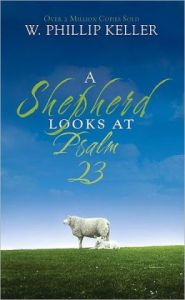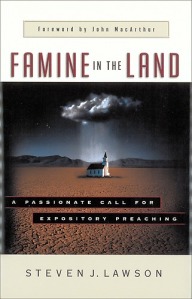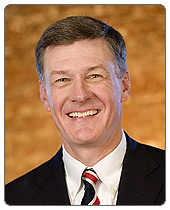One of my favorite things to do is read. It has become a passion of mine to read, and as such, I am always trying to make it a passion of others. One of the best ways to learn is through reading. However, I have found that most people do not share the same passion that I do. The majority of people will agree that reading is important, that one should always be reading something, and that one of the best ways to learn is through reading, few actually practice the art of reading. I have found that many simply lack the knowledge of ‘how to read.’ Tim Challies has done a great job of motivating people to read through 10 tips for reading more and reading better and for that reason, I have included his entire article on the subject below for your enjoyment….but in order to enjoy it, you must first read it.
10 Tips to Read More and Read Better
By Tim Challies
September 17, 2007
The subject of reading has been much on my mind lately. I love to read but often receive emails from people who struggle to read and struggle to enjoy reading. Thus I thought it might be beneficial to piece together a list of tips to read more and to read better. I hope you find it useful.
Read – We start with the obvious: you need to read. Find me someone who has changed the world and who spent his time watching television and I’ll find you a thousand who read books instead. Unless reading is your passion, you may need to be very deliberate about setting aside time to read. You may need to force yourself to do it. Set yourself a reasonable target (“I’m going to read three books this year” or “I’m going to finish this book before the end of the month”) and work towards it. Set aside time every day or every week and make sure you pick up the book during those times. Find a book dealing with a subject of particular interest to you. You may even find it beneficial to find a book that looks interesting—a nice hardback volume with a beautiful cover. Reading is an experience and the experience begins with the look and feel of the book. So find a book that looks like one you’ll enjoy and commit to reading it. And when you’ve done that, find another one and do it again. And again.
Read Widely – I’m convinced that one reason people do not read more is that they do not vary their reading enough. Any subject, no matter how much you are interested in it, can begin to feel dry if you focus all of your attention upon it. So be sure to read widely. Read fiction and non-fiction, theology and biography, current affairs and history. You will no doubt want to focus the majority of your reading in one particular area, and that is well and good. But be sure to vary your diet.
Read Deliberately – Similar to reading widely, ensure that you read deliberately. Choose your books carefully. If you neglect to do this, you may find that you overlook a particular category for months or years at a time. Al Mohler, a voracious reader, divides books into six categories: Theology, Biblical Studies, Church Life, History, Cultural Studies, and Literature and has some project going within each of these categories at all times. You can draw up categories of your own, but try to ensure you are reading from all of these categories on a regular basis. Choose books that fit into each of these categories and plan your reading ahead of time, so you know what book you will read next and you know what you’ll read after that. Anticipation for the next book is often a motivating force in completing the current book.
Read Interactively – Reading is best done, at least when enjoying serious books, when you work hard at understanding the book and when you interact with the author’s arguments. Read with a highlighter and pencil in hand. Ask questions of the author and expect him to answer them through the course of the text. Scrawl notes in the margins, write questions inside the front cover, and return to them often (and, if the questions remain unanswered, even seek to contact the author!). Highlight the most important portions of the book, or the ones you intend to return to later. As Al Mohler says, “Books are to be read and used, not collected and coddled.” I have found that writing reviews of the books I read is a valuable way of returning at least one more time to the book to make sure that I understand what the author was trying to say and how he said it. So interact with those books and make them your own.
Read with Discernment – Though books have incredible power to do good, to challenge and strengthen and edify, they also have the power to do evil. I have seen lives transformed by books but have also seen lives crushed. So do ensure that you read with discernment, always comparing the books you read to the standard of Scripture. If you encounter a book that is particularly controversial, it may be worth ensuring that you can reference a review that interacts critically with the arguments or that you can read it with a person who better understands the arguments and their implications. You do not need to fear bad books as long as you read with a critical eye and with a discerning heart.
Read Heavy Books – It can be intimidating to stare at some of those massive volumes or series of volumes sitting on your bookshelf, but be sure to make time to read some of those serious works. A person can only grow so much while living on a diet of Christian Living books. Make your way through some Jonathan Edwards or John Calvin. Read Grudem’s Systematic Theology or David Wells’ “No Place for Truth” series. You will find them slow-going, to be sure, but will also find them rewarding. Commit to reading some of these heavy volumes as a regular part of your reading diet.
Read Light Books – While dense books should be a serious reader’s main diet, there is nothing wrong with pausing to enjoy the occasional novel or light read. After reading two or three good books, allow yourself to read a Clancy or Grisham or Peretti something else that never changed anyone’s life. Allow yourself to get lost in a good story every now and again. You will find that they refresh you and prepare you to read the next heavy book.
Read New Books – Keep an eye on what is new and popular and consider reading what other people in your church or neighborhood are reading. If The Secret is selling millions of copies, consider reading it so you know what people are reading and so you can attempt to discern why people are reading it. Use your knowledge of these books as a bridge to talk to people about their books and what attracts them to the ones they read. Use your knowledge of these books to understand what other Christians are reading and why.
Read Old Books – Do not read only new books. I cannot say this any better than C.S.Lewis: “It is a good rule, after reading a new book, never to allow yourself another new one till you have read an old one in between. If that is too much for you, you should at least read one old one to every three new ones. Every age has its own outlook. It is specially good at seeing certain truths and specially liable to make certain mistakes. We all, therefore, need the books that will correct the characteristic mistakes of our own period. And that means the old books.” So be sure to read old books, whether that means classics or whether that simply means books that come from a generation or two before your own. And be sure to read history as well, since there is no better way of understanding today than by understanding yesterday.
Read What Your Heroes Read – A couple of years ago, while at the Shepherds’ Conference, a young man who was in ministry but had not had opportunity to attend seminary asked John MacArthur what he would recommend to this man so he could continue learning and continue growing in his knowledge of theology. MacArthur’s answer was simple: He said that this pastor should find godly men he admires and read what they read. So do that! Find people you admire and read the books that have most shaped them. I have compiled a short list of recommended reading at Discerning Reader. While the content is still a mite sparse, I do hope to add some more lists to it before long. Even in its current form it may be a good starting point for you.
This is the entirety of the original article, however, if you prefer to see it at its original source, it can be found at http://www.challies.com/articles/10-tips-to-read-more-and-read-better-0.



